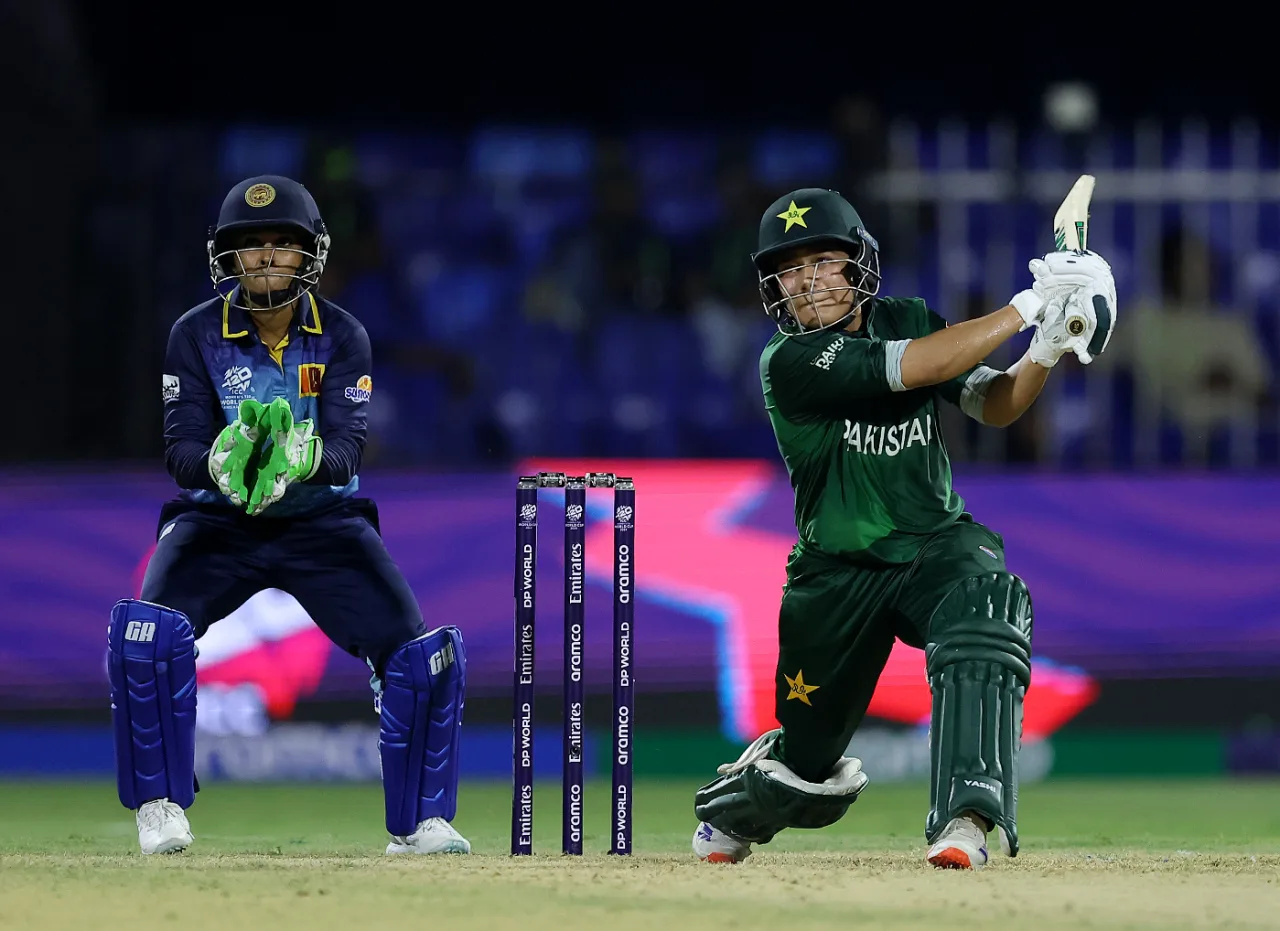At one point, Pakistan could not escape with a victory in Sharjah. All out for just 116 runs, their innings lacked momentum, with no batter crossing the 30-run mark except captain Fatima Sana, who played a crucial knock of 30 from 20 balls while batting down the order at No. 7.
The situation worsened when Pakistan lost their opening bowler, Diana Baig, to an injury just one ball into their defense, leaving them with a depleted attack. Halfway through the match, Pakistan appeared well out of the contest.
However, Sri Lanka had no answers to Pakistan’s spin-heavy bowling attack. Off-spinner Omaima Sohail led the charge with a tricky spell, extracting plenty of turn and keeping the ball low.
Her figures of 2 for 17 were instrumental in creating pressure on the Sri Lankan batters. Nashra Sandhu also contributed with two wickets, while fellow left-arm spinner Sadia Iqbal picked up three.
Despite her responsibilities as a skipper, Captain Fatima Sana showcased her all-round skills with two wickets from her medium-pace bowling, making her a standout performer.
The loss of Diana Baig early on was a significant blow to Pakistan’s plans. Baig had been ruled out of the previous T20 World Cup in South Africa after fracturing her finger just before the tournament, and this time, it appeared to be an injury to her right calf muscle, which had been heavily taped before the match.
Captain Sana stepped in to complete Baig’s over and later mentioned in the post-match conference that she believed Baig’s injury was just a cramp and that she would likely recover in time for the next match.
“When I got the captaincy, I decided to lead from the front, and that’s what I did today,” said Sana.
“We had the early injury, and I was under pressure, but Muneeba [Ali] and Nida [Dar] encouraged me to stay focused. The team was counting on me.”
At just 22 years old, Sana took over the captaincy from Nida Dar in August, and this was only her fourth T20 match as captain.
Her leadership caught the attention of Sri Lanka’s captain, Chamari Athapaththu, who praised Sana during the post-match presentation. “She played really good cricket and is always leading from the front,” Athapaththu said.
Meanwhile, Athapaththu has been the backbone of Sri Lanka’s performances for some time.
Her incredible form, dating back to mid-2023, has seen her score 928 runs in T20Is at an impressive average of 44.19 and a strike rate of 136.47, compared to her career strike rate of 110.77.
She again played a pivotal role in the match, taking three wickets for just 18 runs and putting Pakistan in danger of being bowled out within their 20 overs.
However, Pakistan managed to hold on until the end, despite losing Sadia Iqbal on the last ball of the innings, caught by Gunaratne off Udeshika Prabodhani.
At one point, Sri Lanka seemed on course for a quick victory when Athapaththu struck a boundary early in the chase.
But Fatima Sana turned the game around by dismissing Athapaththu in the third over, setting the tone for Pakistan’s defense.
Sri Lanka’s batting lineup struggled to find a rhythm on the slow Sharjah pitch. Only Nilakshika Silva (22) and opener Vishmi Gunaratne (20 off 34) managed to reach double figures, and as wickets continued to tumble, the Sri Lankan run rate never picked up.
Reflecting on the performance, Vishmi admitted that the team struggled with the conditions and Pakistan’s spin attack.
“It wasn’t easy to adjust to the conditions,” Vishmi said. “The pitch was low, and they didn’t give us any pace to work with.”
Pakistan and Sri Lanka will face more formidable challenges in the future. Sri Lanka is set to face defending champions Australia in their next match, while Pakistan will meet arch-rivals India in Dubai, promising more exciting cricket in the coming days.



